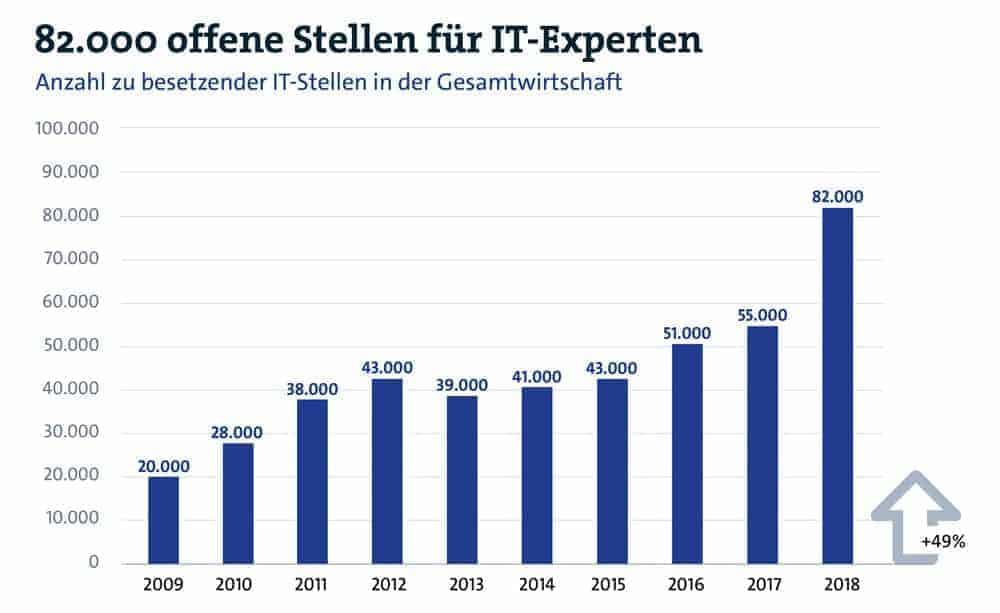Soft skills and shortage of skilled workers


In 2019, companies across all sectors will see a big focus on digital skills training, particularly in areas such as data analytics, informatics and other technical skills. But it's not just about digital skills - there is also a growing need for soft skills training to support digital transformation.
Technologies like AI, IoT and blockchain are gaining influence on the way we work. Fear of the unknown triggers concerns for many employees about the potential of these new technologies - even to the point of fear of losing their jobs.
It is important to convey that these technologies will not "steal" jobs, but will change job profiles. Automating monotonous and mundane processes gives employees the opportunity to move into new and more demanding roles.
Soft skills, our human capabilities, such as creativity and critical thinking, will play a critical role. Humans are still superior to technology in these areas, and forward-thinking organizations are recognizing the value of these skills and nurturing them to prepare for the changes ahead.
Skills Gap and Skills Shortage
The shortage of IT specialists has reached a new high. There are currently 82,000 vacancies for IT specialists in Germany. This represents a significant increase of 49 percent compared to the previous year. In 2017, 55,000 positions were vacant.
This is the result of the latest study on the labor market for IT specialists by the digital association Bitkom. It is based on a representative survey of more than 800 managing directors and HR managers in companies from all sectors.
According to the survey, 82 percent currently report a shortage of IT specialists. A year ago, the figure was 67 percent. Companies expect the number of unfilled positions to continue to rise.
Training and retraining technical staff will be one of the most important activities organizations can tackle in 2019 to address the skills shortage. Comprehensive training measures are essential to close the skills gaps.
Above all, these should be flexible and practice-oriented in order to give employees the opportunity to integrate learning units into their everyday work. Companies that do not consider further training measures risk not having the necessary qualifications within their workforce in the near future and thus not being able to meet market requirements. Capable employees are still the most important asset of any company.

Recruitment difficult
The search for personnel is a lengthy process. On average, it takes five months to fill a vacant IT position.
"IT specialists are desperately sought across all industries"
says Bitkom Chief Executive Bernhard Rohleder.
"The requirements for digital competence are also increasing in many traditional professions. This development is reflected in the rapidly growing number of vacant IT jobs."
Filling IT positions fails primarily because of money, but also because of a lack of qualifications and competence. The strong demand for IT specialists is also causing applicants' salary expectations to rise.
Three out of four companies state that applicants demand too much salary. Four out of ten complain about a lack of professional qualifications, and a good third miss soft skills such as social skills.
When looking for personnel in general, companies rely primarily on the Internet. 92 percent publish job offers on their own websites. Companies expect online media and direct contacts to become increasingly important for future recruiting. In contrast, traditional channels such as newspapers will lose importance.





